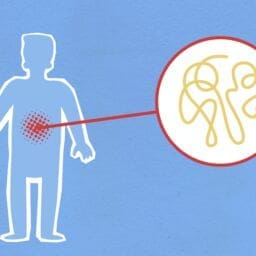
The Holistic Approach to Pain Management: Why It’s Worth the Investment
When it comes to managing chronic pain, a holistic approach can be more successful in the long term, even though it may take longer to show results. This method focuses on addressing the root causes of pain and promoting overall wellness, leading to more permanent relief.
The Role of Acupuncture
Acupuncture is a fascinating topic deserving of its own detailed discussion. Numerous studies have shown that acupuncture can be highly effective for chronic pain management. But why is this the case? The key lies in its ability to help energy flow through our body, particularly at the Nano level, which can be described as Quantum energy. This flow of energy is crucial for maintaining balance and health within our bodies.
While acupuncture may not directly fix the movement flaws that contribute to chronic pain, it offers significant benefits as a non-invasive method. By facilitating energy flow, it can provide relief and support the body’s natural healing processes.
Medications and Their Impact
The opioid epidemic is a well-known crisis, and chronic pain plays a significant role in its perpetuation. Therefore, it is essential to minimize the use of opioids and explore alternative treatments. For instance, THC (tetrahydrocannabinol) can be a safer alternative for some individuals, providing pain relief without the severe risks associated with opioids. However, it’s important to acknowledge that opioids may still be necessary for individuals experiencing severe pain, as they need to function and get through the day.
Non-steroidal anti-inflammatory drugs (NSAIDs), such as ibuprofen and naproxen, can also be helpful in managing pain. However, these medications come with their own set of risks. Long-term use of NSAIDs can lead to significant damage to the kidneys and liver. Additionally, they can destroy the gut lining, which results in increased inflammation and, consequently, more pain. Therefore, it’s crucial to use these medications cautiously and consider their potential long-term impacts on the body.
The Benefits of a Holistic Approach
By focusing on a holistic approach to pain management, you address not only the symptoms but also the underlying causes of pain. This method may include a combination of therapies such as acupuncture, lifestyle changes, dietary adjustments, and mindfulness practices. Though it may require more time and effort, the benefits are more sustainable and contribute to overall well-being.
In conclusion, while medications and traditional treatments have their place in pain management, exploring holistic alternatives can provide long-term, more permanent relief. This approach emphasizes the importance of energy flow, careful use of medications, and a comprehensive strategy to address chronic pain effectively.
















